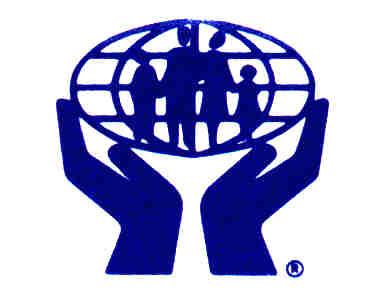ILCU: 455,000 Irish people have no disposable income.

Yesterday, IBEC, the Irish Exporters Association and Chambers Ireland all warned that reversing the minimum wage cut and restoring the rate to €8.65 an hour would be 'unwise'. IBEC said that the government's decision to raise the minimum wage back to €8.65 is "at odds with the economic needs of the country".
Today, the Irish League of Credit Unions launched a new 'What's Left' disposable income tracker index and announced details of the disposable income available to Irish people for April 2011. They found that just over a fifth of Irish adults have around €70 a month (or around €17 a week) left after they've paid essential bills. 245,000 people (7%) have nothing left after they've paid their rent/mortgage and bills, while 210,000 (6%) don't earn enough to cover these essentials. More than 350,000 people said that any further decrease in the minimum wage would see them better off not working at all.
In the context of a debate on last night's Tonight with Vincent Browne in which he said that, "The hits [to wages and salaries] have been taken for four years in the private sector" IEA CEO John Whelan was asked by Elaine Byrne how much his salary has been cut by in the past year; he responded: "It didn't actually come down, as such." Asked if he could live on €7.60 an hour Whelan replied: "I couldn't."
One wonders whether Ireland's 'competitiveness' is sufficient justification for further cuts to wages in a country where so many people can barely scrape by; one wonders further if statements to the effect that the lowest-paid must suffer further cuts, when issued by individuals who have not seen any decrease in their substantial remuneration packages and who could not see themselves surviving on low or minimum wage, should be greeted with anything but scorn and incredulity.
Headline data from the What's Left tracker is excerpted below.
The highlights from the first (April 2011) ILCU 'What's Left' tracker found that, as expected, mortgage and rent are seen as the largest / most important bills for respondents (72%). This is followed by utilities (55%) and groceries (51%). Transport / car (26%), loan repayments (25%), credit cards (25%) and health insurance (24%) were all ranked at a similar level of importance.
Of all respondents: 21% or 735,000 Irish adults have between 1 – 5% of their income left over after they have paid essential bills. 6% or 210,000 Irish adults state their income doesn't even cover their essential bills while a further 7% (245,000 adults) state that they have nothing left to live on after they have paid their essential bills.
665,000 (19%) Irish adults have between 6-10% left while a further 27% of respondents have just enough (10-20%) of their income left over after they have paid for all their essentials. 20% have more than 20% left over which is enough to enjoy themselves.
Of those that work: 19% or 342,000 of Irish adults have between 1 - 5% of their income left over after they have paid for their essentials while a further 20% or 360,000 have between 6-10% left or an average of €200 of their income left per month. It is estimated using CSO data (Q4 2010) that this cohort only have on average of €70.00 left over each month after paying for all their essential bills.
Changes from this time last year: 2.4 million Irish adults (69%) have found that their disposable income has decreased from this time last year reflecting changes to tax charges and increasing utility bills and transport costs. Just 420,000 (12%) believe that what they have left over after they have paid for essentials has increased since this time last year while 19% believe it has stayed the same.
Of those who have less than 5% of income left each month: Nearly 1 million people (83%) who have less than 5% of income left over worry about how they will cope if unforeseen expenses arise.
880,000 (74%) who have little or no income left after pay for essential bills fear that they will not be able to cope if there are any further changes made to social welfare / income tax.
36% (428,000) do not see a future for themselves or their family in this country.
30% believe that with any further changes to the minimum wage they would be better off not working.
Saving: 45% of respondents state that they are unlikely to have money to save in the current economic climate.
52% of those with dependent children are unlikely to have money to save as opposed to 42% of those without children.
The survey was conducted by Market Research Company iReach during the period of 24th March to 1st April using the iReach Consumer Decisions Research Panel which delivered 1,000 responses from adults in Ireland aged 18+ to 65+ and is nationally representative by Age, Region, Gender and Social Class.
*Estimates are based on CSO Earnings and Labour Costs Q4 2010 Preliminary Estimates which places average weekly earnings at €699.46
**Population statistics taken from the CSO Quarterly National Household Survey Q4 2010
This research has a confidence level of 95% and confidence interval of 4%.
